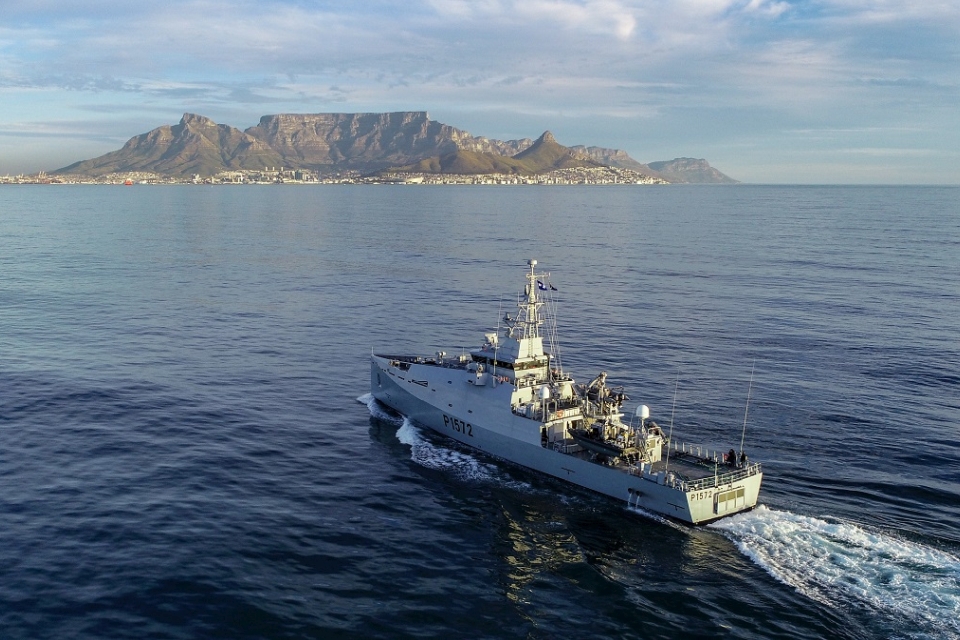The South African Navy named the second of three Multi Mission Inshore Patrol Vessels (MMIPVs) in Durban harbour on Friday, 27 October. During the ceremony, the vessel was officially named SAS King Shaka Zulu.
Named for the great Zulu King, the vessel was built entirely in South Africa at Damen Shipyards Cape Town and it was designed to deliver rapid response capabilities along South Africa’s extensive 2798-kilometre coastline. It is poised to play a pivotal role in safeguarding national waters.
The use of King Shaka’s name is significant as it stands as a symbol of strength, which will now live forever at sea, paying tribute to Zulu nation’s significant role in South Africa’s rich history.
The vessel’s Sea Axe hull design, patented by Damen, ensures exceptional seakeeping behaviour, reduced fuel consumption, and enhanced safety and comfort onboard. These vessels, equipped with advanced military equipment, bolster the navy’s ability to respond effectively and swiftly to threats such as piracy, illegal fishing, and smuggling operations.
Also read: Damen Cape Town delivers first of three patrol vessels to South African Navy
Boost for the local economy
The MMIPV project has not only fortified South Africa’s maritime security, but also contributed significantly to job creation and the development of small and medium-sized enterprises (SMEs). A total of 848 local vendors have actively participated in the construction of the MMIPVs, highlighting the effectiveness of South Africa’s industrial participation policy.
Throughout the project’s duration, it is estimated to have generated more than one million man-hours of work, supported over 1000 direct jobs at Damen Shipyards Cape Town, and engaged nearly 4000 individuals indirectly. The project has also fortified regional supply chains and created opportunities for skilled job seekers, promoting economic prosperity in South Africa’s ocean economy.
Sefale Montsi, Director of Damen Shipyards Cape Town: ‘South Africa must continue to prioritise supporting local vessel suppliers because this creates jobs and develops transferrable skills, which are in demand and can be used in other industries. New technologies are developed, opportunities from abroad are facilitated, and a base for growing exports is created and taken advantage of. As a result of our work on the MMIPV project, DSCT has exported vessels built here and equipped with South African products to Djibouti and UAE.’








